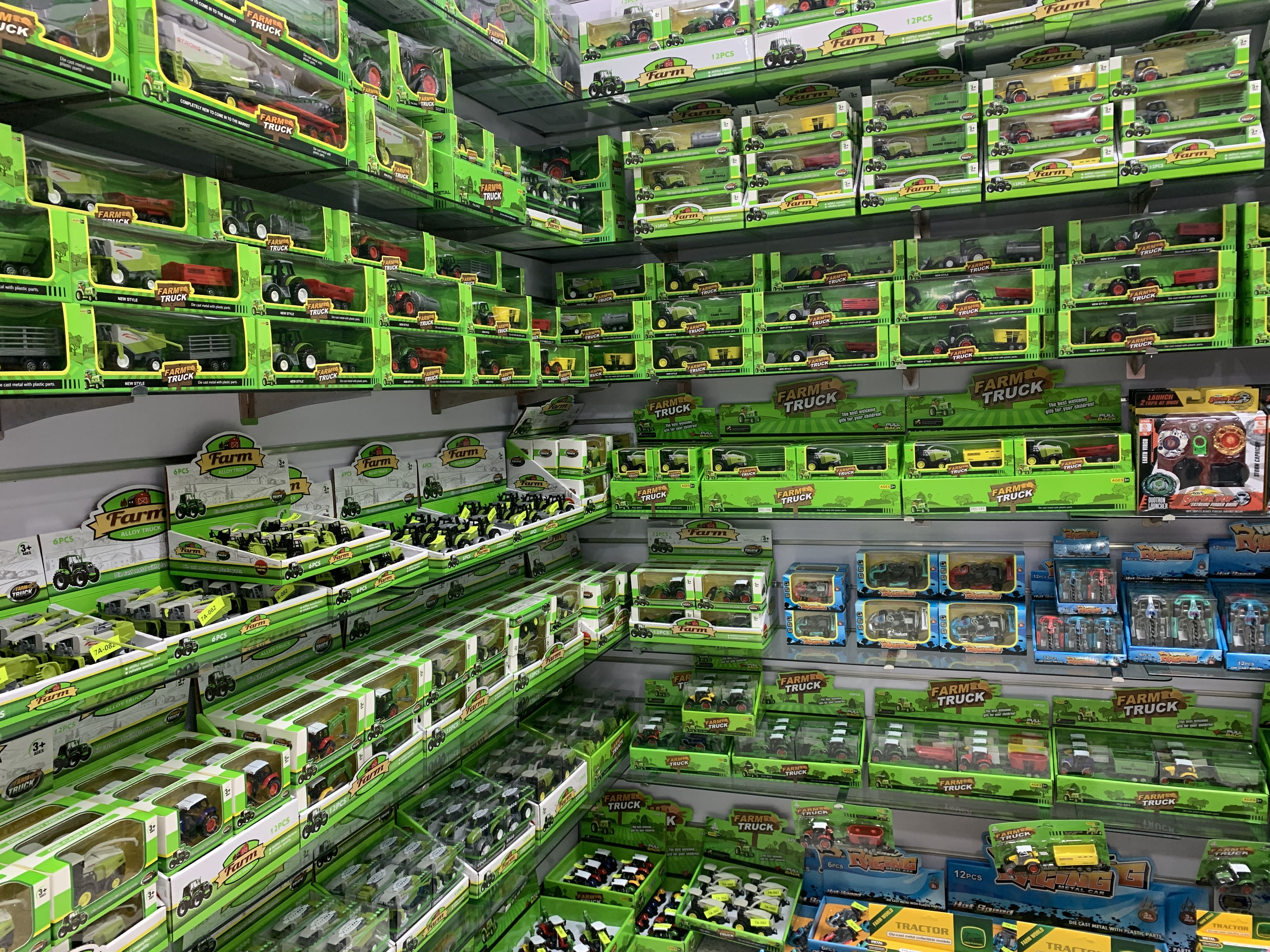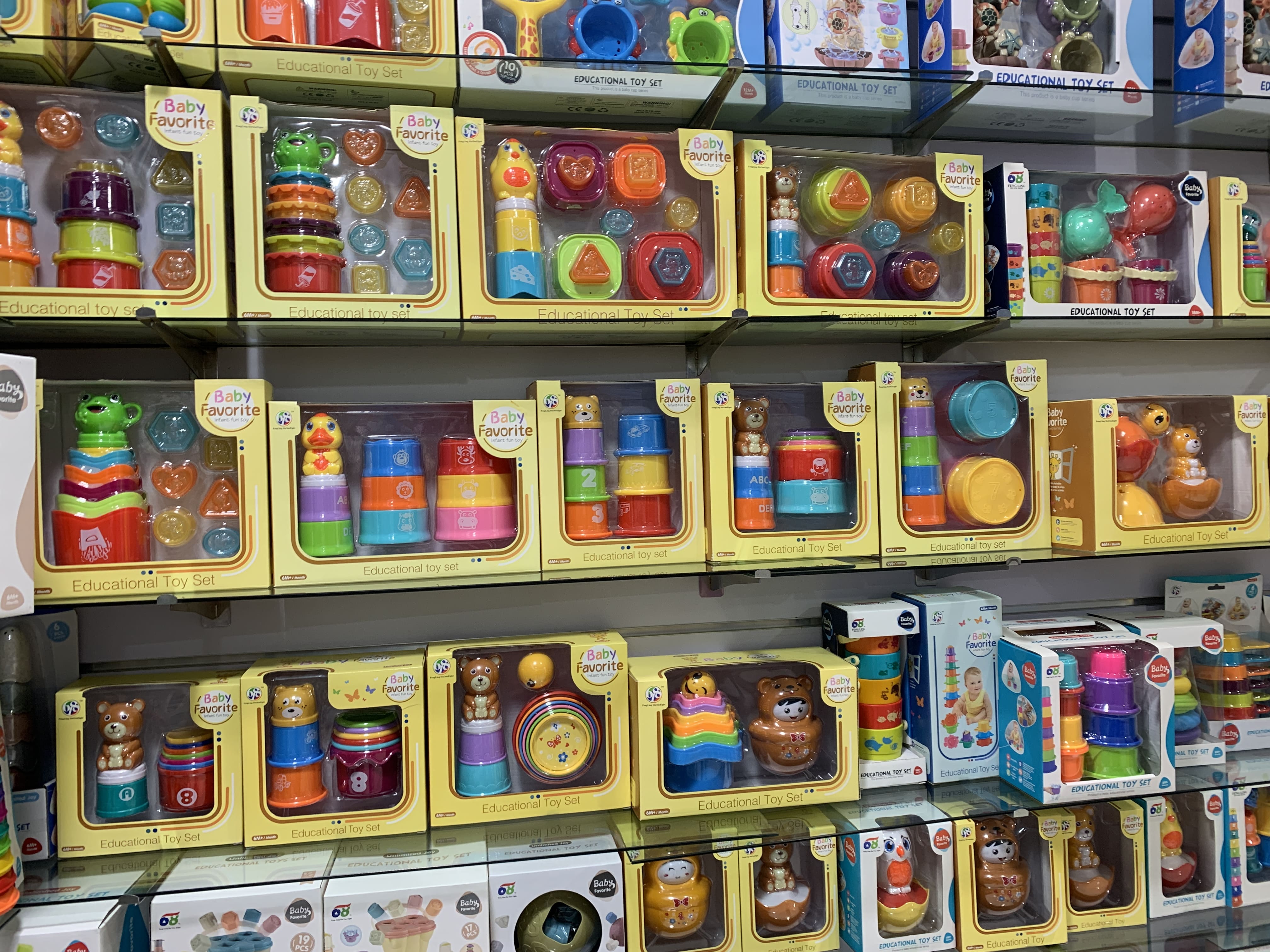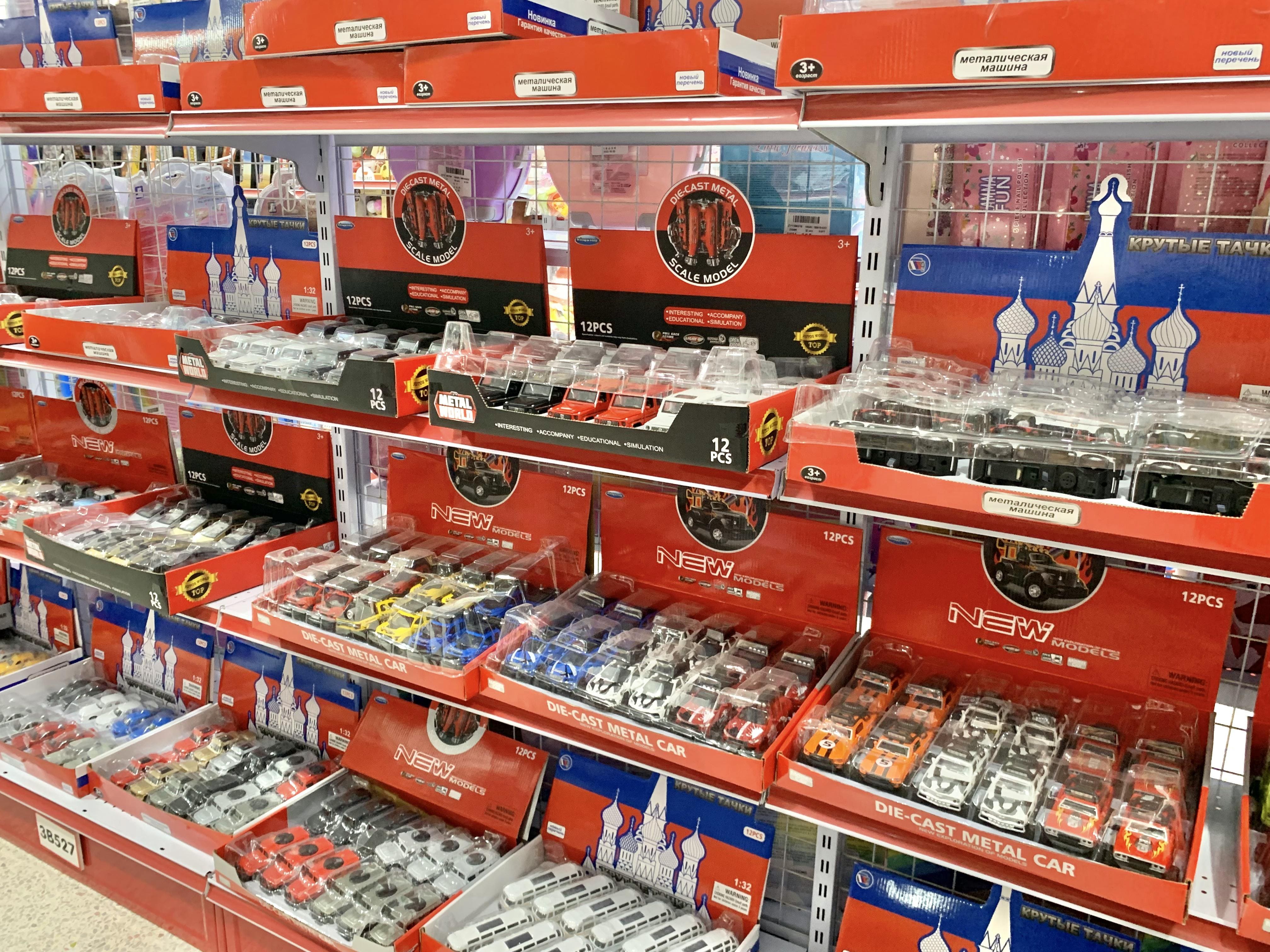English
The Power of Color in Toy Stores: How Colors Influence Sales and Customer Experience
Color plays a crucial role in shaping human emotions, influencing buying decisions, and creating memorable shopping experiences. In toy stores, where children and parents are the primary customers, the right use of colors can significantly impact how products are perceived and purchased. From attracting attention to evoking joy, the strategic use of color in toy stores can enhance the shopping experience and boost sales.
In this blog, we'll explore how different colors affect emotions and consumer behavior, how toy retailers can use color psychology to optimize their store layout.
The Psychology of Colors in Toy Stores
Each color evokes specific emotions and can influence children's and parents' purchasing decisions. Understanding the psychology behind colors helps toy retailers create a more engaging and appealing store environment.
🔴 Red – Excitement & Energy
Red is a color that grabs attention and stimulates enthusiasm. It creates a sense of urgency, which is why many toy packaging and promotional banners include red elements.
-
Best Used For: Sales tags, clearance sections, and action-packed toys like racing cars, superhero figures, and sports equipment.
-
Effect on Customers: Encourages impulse buying and excitement.
🟡 Yellow – Happiness & Warmth
Yellow is associated with joy, optimism, and creativity, making it a perfect color for toy stores. It creates a welcoming and friendly atmosphere.
-
Best Used For: Store signage, kids' play areas, and educational toys.
-
Effect on Customers: Encourages exploration and engagement, making kids feel happy and energetic.
🔵 Blue – Trust & Calmness
Blue creates a sense of trust, security, and peace, which is why many educational and learning-based toys use blue in their designs.
-
Best Used For: STEM toy sections, tech toys, and calming areas within the store.
-
Effect on Customers: Encourages focus and logical thinking, making parents feel comfortable about their purchase decisions.
🟢 Green – Growth & Nature
Green is associated with balance, nature, and growth, making it a great color for eco-friendly and outdoor toys.
-
Best Used For: Nature-inspired toys, sustainable toy sections, and outdoor play areas.
-
Effect on Customers: Promotes feelings of safety and responsibility, appealing to eco-conscious parents.
🟠 Orange – Fun & Enthusiasm
Orange is a playful and energetic color that combines the excitement of red and the warmth of yellow. It's perfect for creating a sense of adventure.
-
Best Used For: Interactive toy displays, adventure toys, and promotional banners.
-
Effect on Customers: Encourages creativity and social interaction, making toys look even more fun.
💜 Purple – Imagination & Luxury
Purple is often linked to creativity, magic, and fantasy, making it a popular choice for fairy tale and princess-themed toys.
-
Best Used For: Plush toys, dolls, and fantasy-themed sections.
-
Effect on Customers: Encourages imaginative play and a sense of wonder.
⚫ Black & White – Sophistication & Simplicity
While black is rarely used in children's toys, it can add a touch of elegance and luxury. White, on the other hand, creates a clean and modern look.
-
Best Used For: High-end toy brands, collector's items, and minimalistic store designs.
-
Effect on Customers: Black appeals to premium buyers, while white offers a sense of simplicity and purity.
How to Use Colors to Design an Effective Toy Store Layout
1. Create a Colorful Entrance to Attract Customers
The entrance of a toy store should be vibrant and inviting. Using bright, warm colors like yellow and red can immediately capture attention and encourage customers to walk in.
2. Organize Toys by Color to Improve Navigation
Grouping toys based on color can help children easily locate what they love. For example:
-
Red & Orange Sections: Action figures, racing cars, and high-energy toys.
-
Blue & Green Sections: Educational and outdoor toys.
-
Purple & Pink Sections: Dolls, plush toys, and fantasy-themed items.
3. Use Contrasting Colors for Promotions and Sales
For promotional areas, using contrasting colors like red and white or black and yellow helps sales sections stand out.
4. Create Themed Play Zones with Specific Colors
Toy stores that offer interactive play zones can use specific colors to create different moods. For example:
-
A blue-themed tech area for kids to try electronic learning toys.
-
A green-themed nature zone with eco-friendly wooden toys.
5. Balance Colors to Avoid Overstimulation
While bright colors are essential, using too many bold hues in one space can feel overwhelming. Balancing them with neutral tones like white or pastel shades ensures a pleasant shopping experience.
Why Colorful Toys Matter in Online Toy Sales
For e-commerce toy retailers, color still plays a significant role in marketing and sales. Bright, eye-catching images with strong color contrasts attract attention and increase conversion rates.
If you're selling toys online, consider the following:
✅ Use vibrant product images that highlight toy colors effectively.
✅ Apply color psychology in web design, using warm colors for CTA buttons (like “Buy Now” in red).
✅ Categorize toys by color to help customers find what they like more easily.
For more online toy selling strategies, check out our detailed guide:
👉 When Is the Best Time to Sell Toys Online?
Why Choose Zhorya for Wholesale Colorful Toys?
At Zhorya, we understand that the right colors make a difference in toy sales. That's why we offer a massive selection of vibrant, high-quality toys that attract both children and parents.
🎨 Diverse Colorful Toy Collections
-
Bright outdoor sports toys for active play.
-
Engaging educational toys in eye-catching hues.
-
Magical fantasy toys in dreamy pastels.
📦 Bulk Orders & Wholesale Pricing
-
Competitive wholesale rates for toy retailers.
-
Custom packaging options with color branding.
-
International shipping with secure delivery.
👉 Looking for bulk colorful toys? Explore our wholesale collection today!
Conclusion
The strategic use of color in toy stores can influence customer behavior, enhance shopping experiences, and drive sales. From bright reds that encourage excitement to calming blues for educational sections, the right color choices can make a huge impact on toy sales and brand perception.
Whether you run a physical toy store or sell toys online, understanding color psychology can help attract customers and boost conversions.
For retailers looking to stock vibrant, high-quality toys, Zhorya is your trusted wholesale supplier. With a wide range of colorful toys, competitive pricing, and bulk ordering options, we help toy businesses stand out in the market.
🔗 Check out our latest toy collections and grow your business today!
👉 Explore Zhorya Wholesale Toys 🚀


